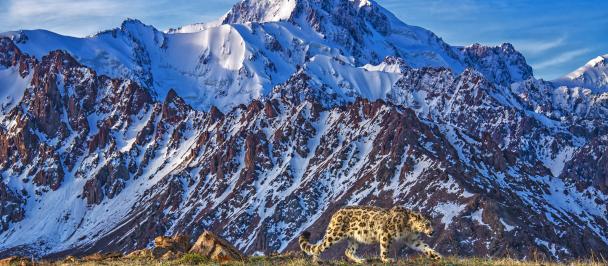UN Development Programme partners with government of Ecuador and the Lavazza Foundation on deforestation-free coffee to protect forests
September 30, 2024

Local coffee producers in Ecuador harvesting coffee beans. The “Deforestation-free coffee” certification provides a guarantee to consumers that no forest land has been cleared or degraded for the cultivation of coffee.
Torino – Ahead of International Coffee Day, the UN Development Programme (UNDP), the government of Ecuador, and Lavazza Foundation have partnered to launch deforestation-free coffee to help protect the country’s forests.
The sustainably produced premium coffee will help efforts to enhance sustainable agriculture and strengthen local communities in Ecuador, as well as opening new market opportunities for small producers and setting a new standard for ethical coffee production worldwide.
The “Deforestation-free coffee” certification provides a guarantee to consumers that no forest land has been cleared or degraded for the cultivation of coffee. This certificate is obtained following rigorous monitoring and enforcement through satellite imagery and third-party verification to confirm that coffee production adheres to strict environmental standards. The Ecuadorian coffee certified under this partnership is grown without contributing to deforestation, protecting vital ecosystems while boosting local agricultural productivity.
“This partnership showcases the power of aligning public and corporate policies towards a sustainable future,” said Michelle Muschett, Assistant Secretary-General and Regional Director of the United Nations Development for Latin America and the Caribbean. “Ecuador's sustainable, deforestation-free certification is not only a testament to our joint efforts in combating climate change and conserving vital forest ecosystems, but it also highlights how innovative, nature-based solutions can create long-term economic opportunities for local communities. This collaborative model is a blueprint for how countries and companies can drive systemic change to ensure both environmental sustainability and economic resilience”, she added.
In partnership with FAPECAFES, a federation representing over 1,800 Amazonian families, the effort supports over 70,000 local producers, 40 percent of whom are women, through improved infrastructure across 18 gathering centers. Ecuadorian coffee organizations, have been at the forefront of this initiative, becoming the first to receive Ecuador’s good agricultural practices and deforestation-free commitment certification.
“Today, on the 20th anniversary of the Lavazza Foundation, we are proud to celebrate the sustainable projects carried out in collaboration with UNDP. This project exemplifies Lavazza’s dedication to sustainability and responsible supply chains” said Giuseppe Lavazza, Chairman of Lavazza Group and member of the Board of Directors of the Lavazza Foundation.
María Cristina Recalde, Deputy Minister of Environment, Water, and Ecological Transition of Ecuador, highlighted the broader impact of the project. “Our work with UNDP and the Lavazza Foundation demonstrates Ecuador's leadership in sustainable agriculture. This project not only protects our forests, but also supports the livelihoods of Amazonian families through the improvement of coffee production practices.”
This launch of deforestation-free coffee builds on the achievements of the PROAmazonía Programme, a comprehensive initiative supported by Ecuador’s Ministry of Environment, Water, and Ecological Transition and the Ministry of Agriculture and Livestock.
To learn more about the deforestation-free coffee initiative and UNDP's leadership in sustainable coffee production. Click here to learn more.
For more information and media inquiries, please contact:
Sıla Alıcı Digital Communications Specialist, UNDP
sila.alici.kavuk@undp.org
Vanessa Hidalgo, Regional Communications Advisor Latin America and the Caribbean, UNDP

 Locations
Locations



